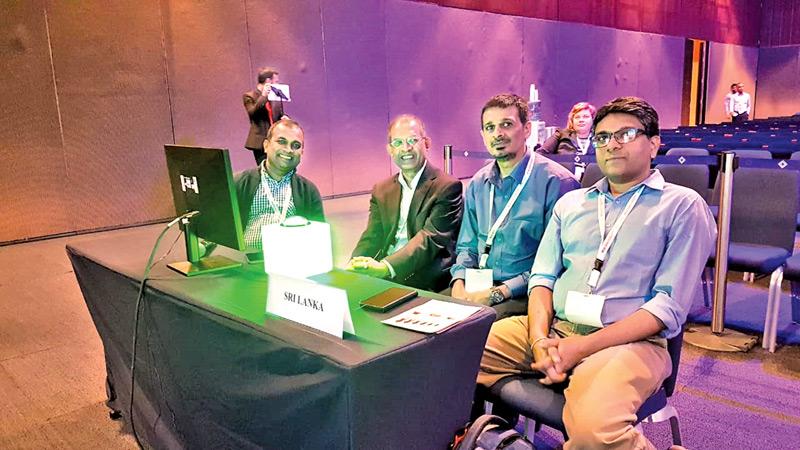
Four Consultant Neurologists have helped Sri Lanka to emerge runner up at a prestigious event organized by the World Federation of Neurology ( WFN) .
Reflecting on that iconic moment when the results were announced, Consultant Neurologist Dr A, T, Alibhoy who led the team told the Sunday Observer, “It was a very satisfying experience, as the Tournament of the Minds is a popular competition among WFN societies.” Explaining the nature of the contest, he said, “each country enters a team of 4 neurologists to compete with each other in a knockout competition to demonstrate national pride, and to test intellectual tenacity by answering questions on a range of neurological topics based on clinical cases from around the world.’’
The Tournament of Minds is a prestigious event, held at the World Congress of Neurology organised by the World Federation of Neurology (WFN). The WFN is an association of over 120 national professional neurological societies from all regions of the world. The 24th World Congress of Neurology was held this October at the World Trade Centre in Dubai, UAE.
A team from Sri Lanka comprising four Consultant Neurologists, namely Dr. A. T. Alibhoy (Team Leader), Prof. S. Gunatilake, Dr. S. Bandusena and Dr. M. Caldera were nominated by the Association of Sri Lankan Neurologists to represent the country in this tournament.
“After being successful in the quarter and semi final competition, India, Hong Kong, Malaysia and Sri Lanka made through to the finals. The Sri Lankan team emerged runner-up following an outstanding effort, and narrowly missing the championship to Hong Kong.The team received their runner-up medals from Prof. William Carroll, President, WFN and Dr. Suhail Abdulla Mohammed Al Rukn, President, Emirates Neurological Society”, Dr Alibhoy said.
Leptospirosis (Rat Fever) rising
Health officials have expressed concern over the rise in Leptospirosis (also known as Rat Fever) country wide . About 4,005 positive Rat Fever patients have been detected countrywide during the period from January 1 to October 31, 2019. The present figure is over 4,106 cases all over the island starting from January this year to November 5, showing an increase of over a 100”, they said. The officials said the number of cases had begun to climb from May ( 508) and June (464) dipping in July, August and September, and rising again in October to 481 from 364 in September .
“The increase of over a 100 cases from September to October, though negligible is still a matter of concern”, Health Ministry sources told the newspaper noting that in the first few days of this month alone up to November 5 , a total of 71 cases have been recorded. According to the Epidemiology Unit figures, it showed that district wise in October, Kalutara had the highest number of cases in October (66), Ratnapura (54),Galle (39) and Kegalle(34) in the second, third and fourth positions respectively, as well as Anauradhapura and Polonnaruwa.The mounting cases have prompted the Epidemiology Unit to issue a red alert to all regional medical officers to be vigilant and have sufficient stocks of drugs with them to attend to sick patients. Epidemiologists told the Sunday Observer that many people were still unaware of the serious consequences of getting the disease and not taking precautions which were available to them.
They said Leptospirosis is a zoonotic disease, endemic in Sri Lanka. Previous experience and our data suggest that the disease is mainly associated with paddy farming. Therefore, the persons engaged in paddy cultivation are advised to keep the area around the paddy fields clean, ensure the existing water is flushed prior to cultivation and the Niyara is kept narrow and free of rat burrows.”Asked why it was called rat fever, they said the rat is the known most common carrier of the infection in Sri Lanka. On precautions, they said “It is advisable to destroy rat burrows and eliminate rats around paddy fields. It is also important for those engaged in paddy cultivation and having symptoms of fever, headache and myalgia to seek healthcare”. For further information they advised to contact the Medical Officer of Health (MOH) and the range Public Health Inspector (PHI) of your area.
